Why lack of sleep can lead to weight gain
Not getting enough sleep can make you put on weight. I've suspected this for a long time, but there's a growing body of scientific research that supports this.
When I was running a small juice and smoothie cafe a few years ago, I was working long hours and I had very early starts. About once a week I'd have to get up at 5am to go to the fruit market.
I used to pass a 24-hour petrol station as I was driving to work, and for a while I stopped there almost every morning and bought a pack of three chocolate walnut whips. I'd kid myself that it would last me three days, but it rarely lasted till the next day.
Not surprisingly, I started to put on weight… but I eventually managed to break my chocolate addiction by drinking two green smoothies each day and eating a lot of fruit and veg. My diet was around 80 percent raw! I lost a lot of weight – but after a couple of years, the weight started piling on again, no matter how healthy my diet was.
After five years of running that business and working very long hours, my thyroid started to malfunction and I had all sorts of health problems.

I'll discuss my thyroid problems another time, but looking back, I think it was probably the lack of sleep, night after night, that caused me to put on weight – and it was probably a big factor in my thyroid problems too.
There seems to be an increasing amount of evidence that this is the case. It is a complex issue – there are many factors in obesity. But consistent lack of sleep is definitely one of them.
A recent study by researchers at Warwick University in the UK found that:
"Children who get less than the recommended amount of sleep for their age are at a higher risk of developing obesity.
"Children and adolescents who regularly sleep less than others of the same age gain more weight when they grow older and are more likely to become overweight or obese.
The authors reviewed the results of 42 population studies of infants, children and adolescents aged 0 to 18 years, which included a total of 75,499 participants.
Participants were followed up for a median period of three years, and changes in BMI and incidences of overweight and/or obesity were recorded over time.
At all ages short sleepers gained more weight and overall were 58% more likely to become overweight or obese.
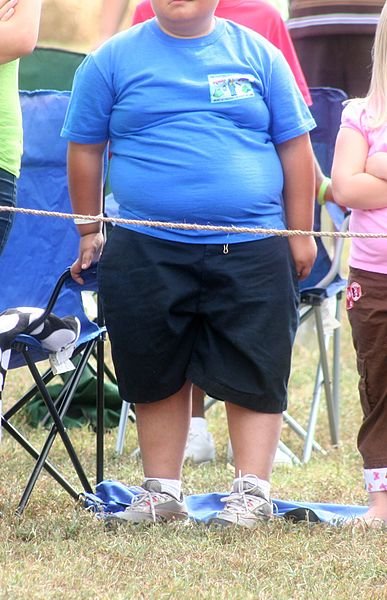
Source
The research was carried out by Professor Francesco Cappuccio and Dr Michelle Miller, and it was published in the journal Sleep.
Children need more sleep than adults, and the younger they are, the more sleep they need. The National Sleep Foundation recommends the following amounts of sleep according to age:
• newborns (0-3 months) – 14 to 17 hours sleep each night
• infants (4 to 11 months) – 12 to 15 hours
• toddlers (1-2 years) – 11 to 14 hours
• children (3-5 years) – 10 to 13 hours
• and school-age children (6-13 years) 9 to 11 hours
• teenagers (14-17 years) 8-10 hours.
Matthew Walker, author of the book Why We Sleep, has collected research to demonstrate the link between lack of sleep and weight gain. Walker is Professor of Neuroscience and Psychology at Berkeley University in California.

Professor Walker says: "When your sleep becomes short, you will gain weight. Multiple forces conspire to expand your waistline."
The first force that he focuses on are the hormones leptin and ghrelin. Leptin signals a feeling of being full and can reduce your appetite, while ghrelin increases your appetite and gives a feeling of being hungry.
Walker discusses research into sleep and appetite carried out by Dr Eve Van Cauter at the University of Chicago.
Her research found that when a group of people were given the opportunity to have eight and a half hours' sleep over five nights, and another group were only allowed four or five hours' sleep a night over the same period, in controlled "sleep lab" conditions, the group which were only allowed four or five hours' sleep were much hungrier than those who were allowed eight and a half hours' sleep. And this was despite being given the same amount of food and being similarly active.
This is believed to be because insufficient sleep decreases levels of leptin, the "feeling full" hormone, and increases levels of ghrelin, the "feeling hungry" hormone.
In another experiment by Van Cauter, calorie consumption was monitored, and during periods when people were only allowed four or five hours' sleep, they consumed 300 calories MORE than when they were allowed eight and a half hours' sleep.
Another one of Van Cauter's experiments saw participants being allowed to eat from a buffet after four nights of eight and a half hours in bed, and from the same buffet after four nights of four and a half hours' sleeping opportunity.
The buffet included a snack bar offering biscuits, chocolate bars and chips.
After four days of sleep-deprivation, participants hit the snack bar, and consumed 330 additional calories, compared to when they'd had four days of adequate sleep.
Van Cauter noticed that cravings for sweet foods, dense carbohydrates like bread and pasta and salty snacks all increased by 30 to 40 percent when sleep was reduced by a few hours each night.
Matthew Walker says that his team conducted research to find out what was going on in the brain when sleep-deprived people were viewing and choosing food. They:
"discovered that supervisory regions in the prefrontal cortex required for thoughtful judgements and controlled decisions had been silenced in their activity by a lack of sleep.
"We found that a full night of sleep repairs the communication pathway between deep-brain areas that unleash hedonic desires and higher-order brain regions whose job it is to rein in these cravings.
"Ample sleep can therefore restore a system of impulse control within your brain…"
Walker also says that "Three-year-olds sleeping just 10 and a half hours or less have a 45 percent increased risk of being obese by age seven than those who get 12 hours of sleep a night."
One other thing. Even if you're dieting and carrying out a fitness regime, it's essential to get a good night's sleep – because it determines the part of your body from which the weight comes off!
Researchers put a group of men and women on a strict low-calorie diet for two weeks. One group was allowed eight and a half hours' sleep, while another group was only allowed to sleep for five and a half hours a night.
Although both groups lost weight, in the group that was only allowed five and a half hours' sleep a night, more than 70 percent of the weight lost came from lean body mass – in other words, from muscle, not fat.
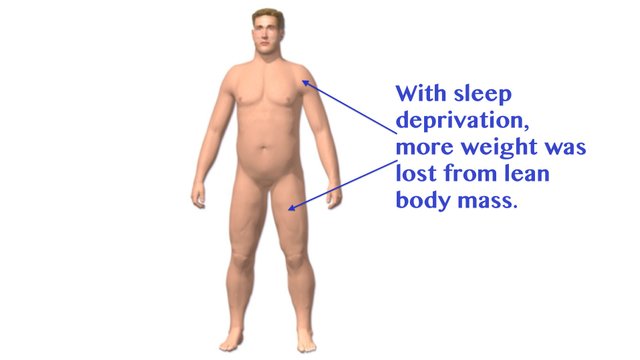
In the other group, who were allowed eight and a half hours' sleep each night, well over 50 percent of the weight loss came from fat.
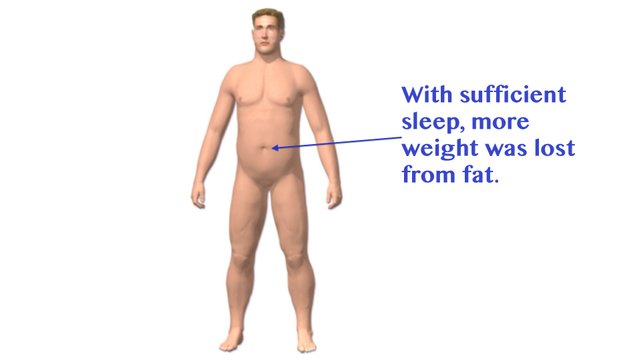
"In other words," Walker writes, "when you are not getting enough sleep, the body becomes especially stingy about giving up fat. Muscle mass is depleted, while fat is retained."
I would actually question that it's all about the prefrontal cortex. I've definitely noticed that when I'm over-tired, my cravings for chocolate go up. I've always thought it was because the body's fuel sources are depleted by my struggles to stay awake, so it starts craving those "quick fix" energy replacement foods – the low GI foods that give you a fast glucose hit, but soon leave you even more tired than before.
Many people recommend carrying sweet high-calorie foods for emergencies when hillwalking. I think chocolate CAN work when you're exhausted on the hills, but I prefer to carry salty nuts and dates – the ones without added glucose.
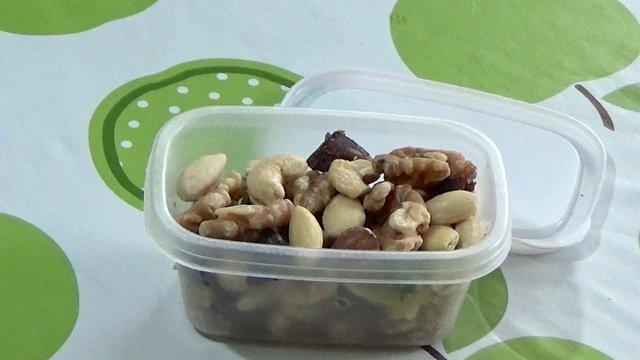
I've seen people carrying Snickers bars that carry large slogans like "done in" and "wiped out" on the label. This annoys me, because if you're feeling "done in" – unless you're trekking in the Himalayas or something – the last thing you should be eating is a chocolate bar, which will just ADD fat to the extra fat that your body is likely to store due to lack of sleep.
Feeling "done in" is your body's way of telling you that it needs some rest!
So, in a nutshell, if you want to lose weight … get some sleep!
.gif)
My video is at DLive
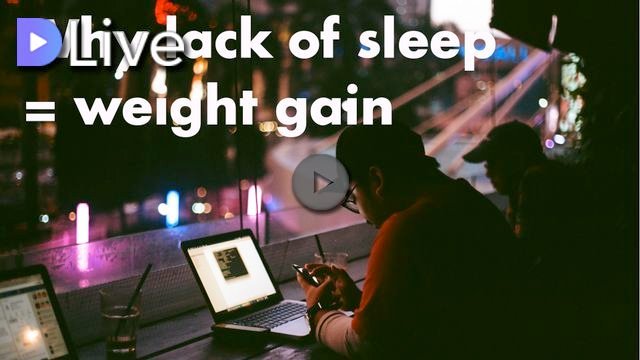
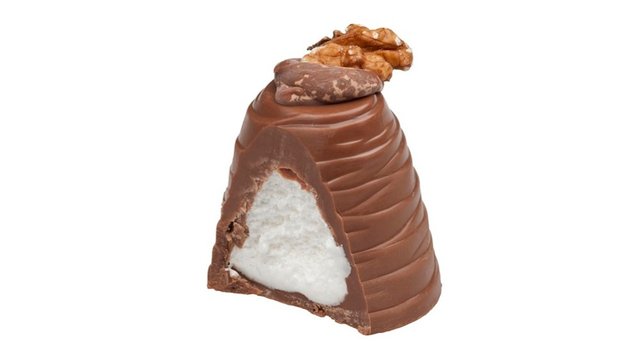
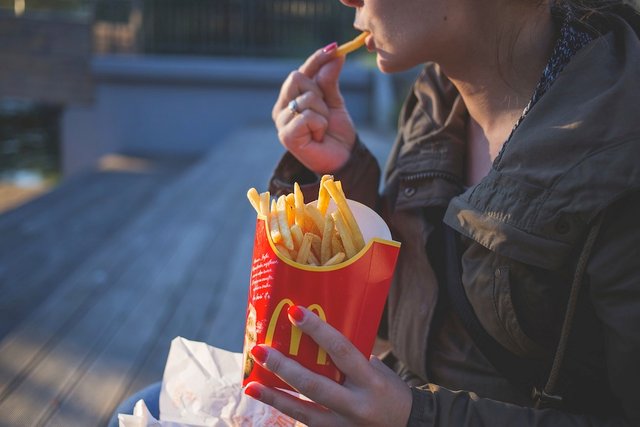
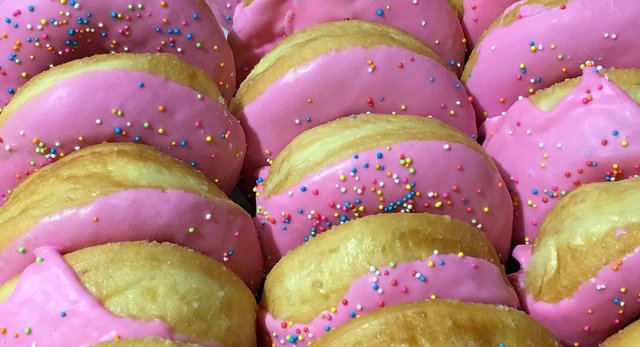
Interesting post, I had no idea that the body depletes muscle mass under sleep deprivation. While I'm not overweight by any means, still worth it to get enough sleep if I'm looking at building up muscle mass. (logical conclusion, right?)
I never realised this either, until I started reading about the subject. The book Why We Sleep references a horrible experiment where rats were put under extreme sleep deprivation. They suffered terrible physical deterioration, and loss of muscle mass was just one of these.
Read my other comment to this post for why that is.
Very thorough article. I have been aware of this propensity to gain weight sleep deprived for awhile now. Other hormones are also affected by lack of sleep. Both growth hormone and testosterone are released in larger amounts when sleeping and both tend to support muscle mass and help to burn fat.
Unfortunately I have been sleep deprived for quite awhile now and I likely will have to live with it for another year or so before I will be able to get some more balance in my life.
Sorry to hear about your lack of sleep. The author of the book Why we sleep recommends 'biphasic' sleep - in other words, taking a nap during the day. That might be a way to catch up on sleep if you can find the time for it. Otherwise you might end up totally burnt out, as I did after five years of running my business!
Once in awhile I can catch a short nap during the day. Yeah, hoping I don't get too burned out.
I really liked the video and the quality .. it was interesting to hear your story. We forget how sleep is very important and in this day and age sleep has become difficult and overlooked
Sleep apnoea is another problem that can develop from being overweight. A vicious cycle of less sleep -> more weight -> less sleep.
Thanks for the great information, I'll definitely keep them in mind. Time to practice good sleep hygiene for better weight loss
Glad you enjoyed my video! My father suffered from sleep apnea, and could be very alarming hearing him snore breathlessly. At the time I had no idea how dangerous that condition could be. He eventually got a pump machine to help him.
I totally agree that sleep tends to be undervalued these days, and it is so important for health. Thanks for your comment.